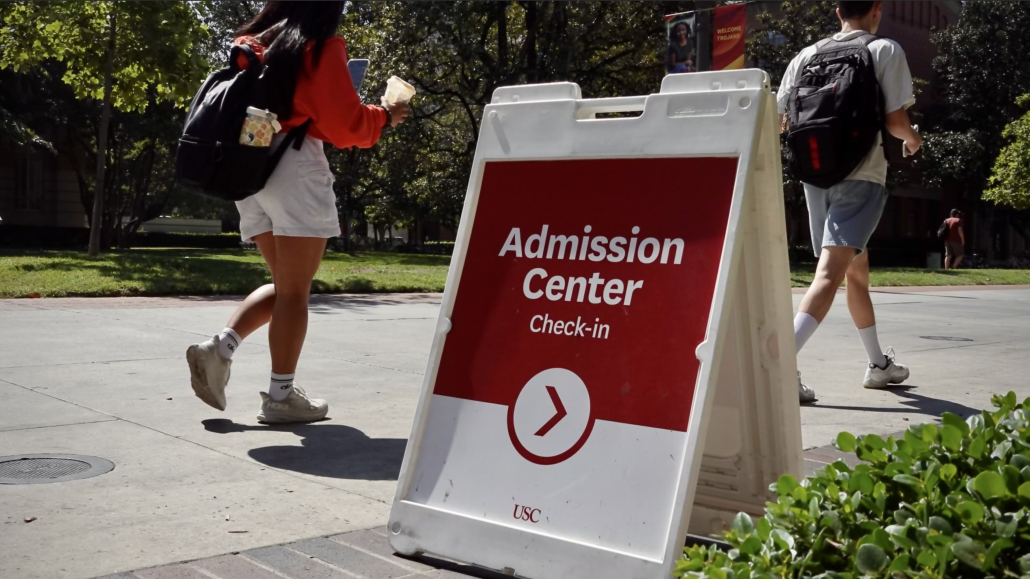USC has the highest percentage of admitted students with ties to donors and legacy among private universities in California, according to a press release from Assemblyman Phil Ting. He authored Assembly Bill 1780 in January to revoke Cal Grant funding from California universities should private universities continue to factor legacy status into their admission decisions.
The Assembly Higher Education Committee considered AB 1780 in May. After deliberation and amendments, the bill states a university demonstrating bias toward legacy admits may be financially penalized for an amount equal to the Cal Grant funding received by the institution during the previous year. The amended AB 1780 was brought to the California State Senate for further deliberation.
The state senate approved the bill in a 26-5 vote on Aug. 27 and sent it to Gov. Gavin Newsom’s desk. If the bill receives Gov. Newsom’s approval, the bill would go into effect immediately, and universities — like USC — could no longer show bias toward its legacy admits. Newsom has to decide to either veto or sign the bill by Sept. 30.
Daily headlines, sent straight to your inbox.
Subscribe to our newsletter to keep up with the latest at and around USC.
“California colleges should be engines of economic mobility, not family heirlooms passed down from parent to child,” wrote Ryan Cieslikowski, a lead organizer at Class Action, in a press release from Ting’s office.
Emilee Park, a student majoring in international relations as well as global business, is in support of the bill as she feels it would make admissions more merit-based.
“In thought, it’s good, especially as someone who is lower-income, that is something that would make us feel better,” Park said. “I don’t know if that would be well-received in California.”
USC promotes the idea of the “Trojan Family,” which emphasizes the networking benefits forged from lifelong connections between alumni, students, staff and faculty. When asked about legacy students in the Spring 2015 Trojan Family Magazine, Dean of Admission Timothy Brunold said the Admissions Office sees “the status as being important.”
During the 2023-24 admission cycle, USC had a 10% acceptance rate and enrolled 3,633 students, with 14% of them being legacy applicants. This marks a slight increase from the 2021-22 admissions cycle, in which 13% of all applicants were legacy students. The University has yet to release a report on the statistics of the demographic in the recent 2024-25 admissions cycle.
“I think it’s important for other students to be able to start off on an equal footing,” said Camille Hudson, a sophomore majoring in biochemistry.
She said legacy status leaves those without it at a disadvantage, including people whose parents cannot afford to provide them with an education.
Ziya Tang, a student majoring in game art, said looking at a student’s parents or sibling’s performance in college can help indicate their overall abilities.
“It’s a little bit biased, although I kind of understand why they do it to keep things consistent,” said Tang. “Overall, I think it’s a little unfair to other students, and if there’s a change, I’ll be pretty happy to see that.”
Applications are submitted through Common App, a site for prospective students to submit their academic and extracurricular materials for the review of college admissions offices across the country. USC uses this platform to evaluate the applications of their prospective students, asking for their background information, academic records and personal statements.
The family section of the USC Common App portal asks applicants to indicate whether they have “any relatives currently employed by the University of Southern California.” It also asks if they have any siblings also applying as first-year students.
In the 2024-25 admissions cycle, there were two questions under the family section that inquired about the applicant’s family history: “Have any relatives ever attended the University of Southern California?” and “Are any of those relatives a parent, grandparent, or sibling?” These questions are no longer asked, as of the 2025-26 cycle.
In a statement to the Daily Trojan, the University did not directly address the bill and its potential impact on the demographic makeup of the USC student body.
“USC is deeply committed to and proud of the diversity of our student body,” the University wrote.
The University emphasized that all students who are admitted meet “high academic standards” and are looked at through a holistic lens. The process for admission and recruiting is constantly evolving, the University said.
“We will comply with state law if the governor signs the bill,” the University said in a statement.
